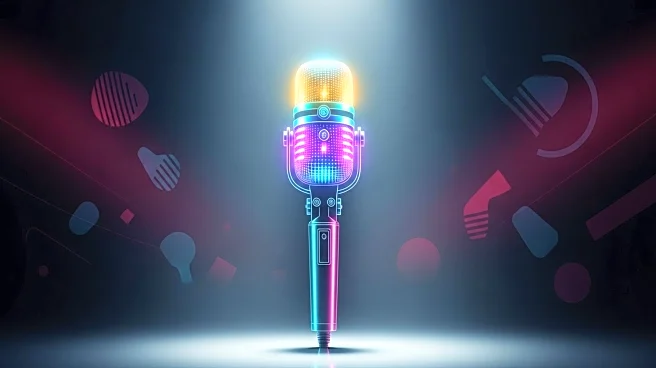What's Happening?
Puerto Rican reggaeton star Bad Bunny has been announced as the headliner for the Super Bowl 2026 half-time show, set to take place in Santa Clara, California. The NFL confirmed the news, highlighting Bad Bunny's significant influence in the music industry, having topped Spotify's most-streamed artist list multiple times in recent years. The Super Bowl, which marks the climax of the NFL season, will be held on February 8 at Levi's Stadium, home of the San Francisco 49ers. Bad Bunny expressed his excitement, stating that the performance is a tribute to his culture and history, and a nod to those who paved the way for him.
Why It's Important?
The selection of Bad Bunny as the Super Bowl half-time show headliner underscores the growing influence of Latin music and culture in mainstream American entertainment. As one of the most popular artists globally, Bad Bunny's involvement is likely to attract a diverse audience, enhancing the cultural representation at one of the most-watched events in the U.S. This move could also signify a shift in the NFL's strategy to appeal to younger and more diverse demographics, potentially impacting future marketing and sponsorship opportunities within the league.
What's Next?
With the announcement of Bad Bunny as the headliner, preparations for the Super Bowl 2026 half-time show will likely intensify, involving collaborations with various artists and production teams to deliver a memorable performance. Fans and industry stakeholders will be keenly watching for further announcements regarding additional performers or unique elements of the show. The NFL may also leverage this opportunity to expand its reach into Latin American markets, potentially influencing future international games and partnerships.
Beyond the Headlines
Bad Bunny's performance at the Super Bowl could have broader implications for the representation of Latin artists in major U.S. events, potentially paving the way for more diverse line-ups in the future. This development may also inspire discussions around cultural inclusivity and the role of entertainment in bridging cultural divides. Additionally, the event could influence trends in music consumption, with increased interest in reggaeton and Latin genres among mainstream audiences.









